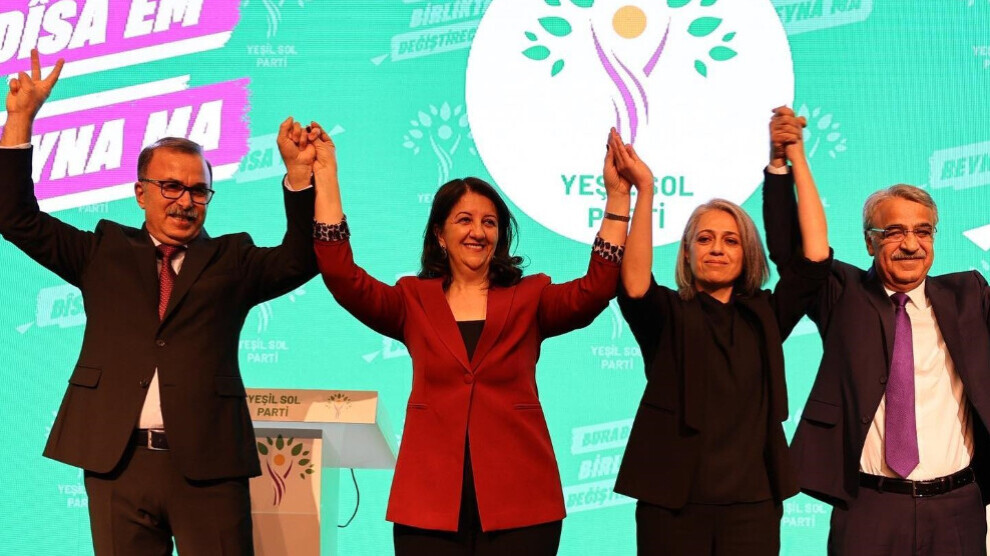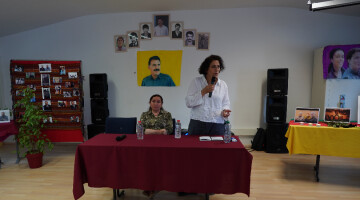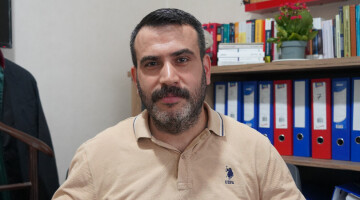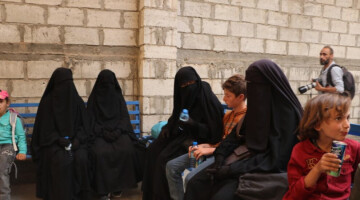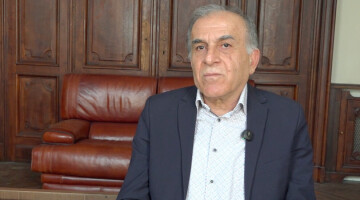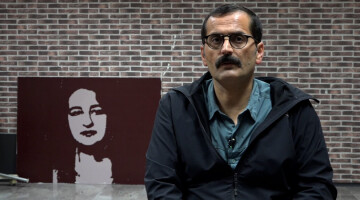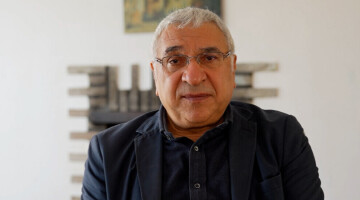On the one hand, attacks on women's rights and lives continue, but on the other hand, their struggle is strengthened by successes. One of these successes is the co-presidency system. In Germany, the Greens introduced the co-presidency system, and in Turkey and Kurdistan, Kurds pioneered this system. The process that began with the participation of women in the activities of political parties led to equal representation in all bodies with the co-presidency system.
2005: Aysel Tuğluk becomes first co-chair of a party
After the People's Labour Party (HEP), the active participation of women developed with the People's Democracy Party (HADEP). Women in mixed politics shaped and accelerated the original struggle with ideological development. Significant successes were achieved on the path taken by women's organisations. The Democratic Society Party (DTP) was the first party to introduce the co-chair system in politics. Co-chairs of the DTP, founded in 2005, were Aysel Tuğluk and Ahmet Türk. The Peoples' Democratic Party (HDP) officially introduced the dual leadership for the first time in Turkey, due to the women's struggle.
Transferred to local administrations
The co-presidency system was officially recognised in 2013. This paved the way for co-presidency in parties in Turkey. In the local elections on 30 March 2014, the Kurdish movement introduced the zip system and co-presidency in local administrations. Previously, 35 per cent (positive discrimination) and 40 per cent (quota system) had been applied. Since then, there has been a 50 per cent gender quota and equal representation in all bodies.
First women co-mayors at municipal level
Nine women were elected as mayors in the 2004 municipal elections and 15 women in the 2009 municipal elections. The DTP was the only party in Kurdistan and Turkey with a women's policy that increased the proportion of women mayors. In the 2014 local elections, the BDP contested with the co-presidency system and the party won 97 municipalities in the elections, showing that the system resonated with society. In October 2014, the Diyarbakır (ku. Amed) Administrative Court ordered the suspension of the co-presidency system, saying it was against the law.
Defended against all attacks
The ordinances with the force of law issued under the state of emergency declared by the government in 2016 appointed trustees in municipalities and usurped the will of the electorate. In many places, such as Amed Municipality, the co-presidency system was cited as one of the reasons for the appointment of forced trustees. According to a report published by the HDP in 2019, state trustees were appointed in 95 Kurdish cities and towns after September 2016. 93 co-mayors and hundreds of local council members were arrested. The Kurdish women's movement responded by announcing, "Co-presidency is our purple line."
Co-mayors arrested
In the local elections on 31 March 2019, the HDP won in 65 municipalities, including three major cities and five provinces. In six localities, the elected local government was denied registration, and in 48 localities, trustees were appointed. On 19 August 2019, less than five months after the election, trustees were appointed by the Turkish Ministry of Interior in Amed, where the HDP had won a 62 per cent share of the vote, in Mardin with 56 per cent HDP votes, and in Van with 53 per cent of the vote for the HDP. The co-mayors were removed due to investigations by the public prosecutor's office, and a large number of them were arrested. Since March 2019, 84 HDP co-mayors have been detained. 39 mayors have been arrested, including 21 women. 19 co-mayors have been sentenced to prison, including for alleged membership of an illegal organisation.
Indispensable principle
The system of co-presidency introduced by Kurdish politics in Turkey has inspired both political parties and civil society organisations. Although the government sees this system as a threat to itself, it has been embraced by society. For the Green Left Party, which is running in place of the HDP in the parliamentary elections on 14 May, co-presidency is also an indispensable principle in all bodies.

